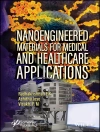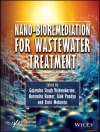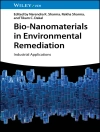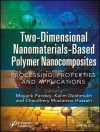This cutting-edge book focuses on the emerging area of
biomaterials and biodevices that incorporate therapeutic agents,
molecular targeting, and diagnostic imaging capabilities
The design and development of biomaterials play a significant
role in the diagnosis, treatment, and prevention of diseases. When
used with highly selective and sensitive biomaterials, cutting-edge
biodevices can allow the rapid and accurate diagnosis of disease,
creating a platform for research and development, especially in the
field of treatment for prognosis and detection of diseases in the
early stage. This book emphasizes the emerging area of biomaterials
and biodevices that incorporate therapeutic agents, molecular
targeting, and diagnostic imaging capabilities.
The 15 comprehensive chapters written by leading experts cover
such topics as:
* The use of severe plastic deformation technique to enhance the
properties of nanostructured metals
* Descriptions of the different polymers for use in controlled
drug release
* Chitin and chitosan as renewable healthcare biopolymers for
biomedical applications
* Innovated devices such as ‘label-free biochips’ and
polymer MEMS
* Molecular imprinting and nanotechnology
* Prussian Blue biosensing applications
* The evaluation of different types of biosensors in terms of
their cost effectiveness, selectivity, and sensitivity
* Stimuli-responsive polypeptide nanocarriers for malignancy
therapeutics
关于作者
Ashutosh Tiwari is an Associate Professor at the
Biosensors and Bioelectronics Centre, Linköping University,
Sweden; Editor-in-Chief, Advanced Materials Letters;
Secretary General, International Association of Advanced Materials;
a materials chemist and also a docent in applied physics at
Linköping University, Sweden. He has published more than 350
articles, patents, and conference proceedings in the field of
materials science and technology and has edited/authored more than
fifteen books on the advanced state-of-the-art of materials
science. He is a founding member of the Advanced Materials World
Congress and the Indian Materials Congress.
Anis N. Nordin received her D.Sc. in computer engineering
from George Washington University in 2008. She is now an Assistant
Professor in the Department of Electrical and Computer Engineering
at the International Islamic University Malaysia, Kuala Lumpur. Her
main research interests are in the areas of biosensors, lab-on-chip
devices, Analog VLSI, RF-MEMS, surface acoustic wave resonators,
and oscillators in particular. She is currently a visiting scholar
at the Biosensors and Bioelectronics Center, Linköping
University, Sweden.












